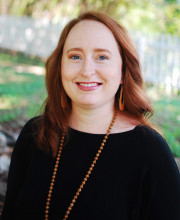Experts Available: Violence Against Women Act
This week, the House of Representatives will vote on a reauthorization of the Violence Against Women Act (VAWA). For reporters covering this bill, the following researchers are available to provide expert analysis and commentary.

Ramaswamy's research focuses on mass incarceration, women's health, and sexual health. She serves on local non-profit boards for domestic violence shelters.
“Violence against women and girls is pervasive and cuts across socioeconomic and racial lines: 1 in 4 women have experienced physical or sexual violence in their lifetimes. Violence against women has only increased during the COVID-19 pandemic, where we have seen global spikes in domestic violence hotline calls, hospital visits, and domestic homicides. The most vulnerable women and children in our society will continue to bear the long-term economic, educational, and social consequences of the pandemic – violence is no exception.”

Sutton is a licensed independent clinical social worker and a current PhD student in the School of Social Work at the University of Alabama. Her research focuses on understanding intimate partner violence, reproductive coercion, and maternal health/mortality through an intersectional feminist framework.
"VAWA provides survivors of gender-based violence with access to vital services so that they can find safety, support, and connection within community. Reauthorizing VAWA sends a message that we as a country care about those who are harmed and aim to hold those who cause harm accountable."

Torres is an anthropologist and practicing Ombuds. Her work focuses on sexual violence and asylum, sexual violence in intimacy, and sexual harassment policy in the academy.
"VAWA has the potential to alleviate a form of violence that shapes the everyday lives of women at home and the workplace. And we must address it! Violence against women not only causes social suffering, furthers vulnerabilities and inequities, but also, as we have seen in this pandemic, has inescapable public health costs."